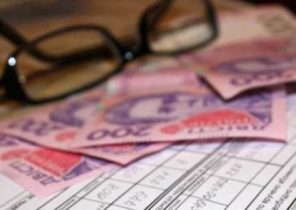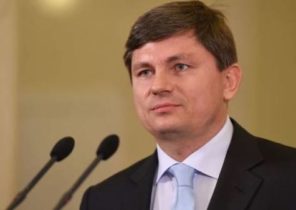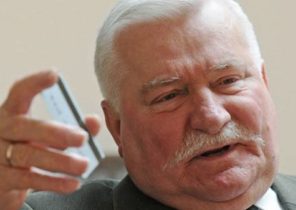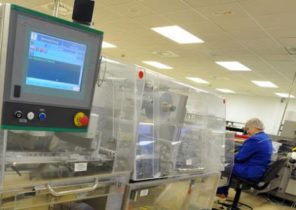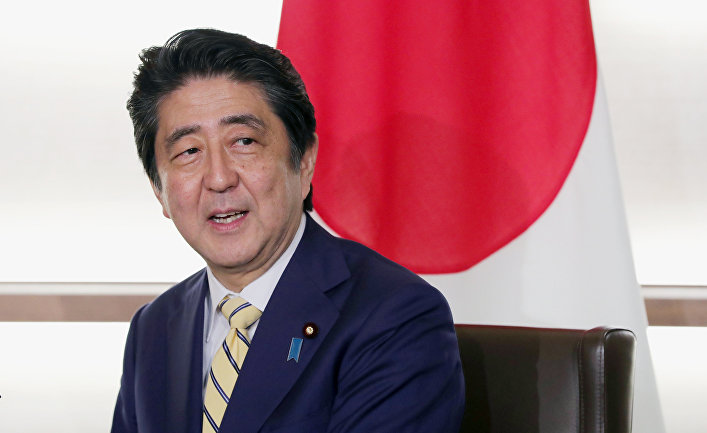
Asia with trepidation awaiting the inauguration of US President trump. They proclaimed a course change may increase the influence of China — to the dismay of the Japanese.
Entrepreneurs are not always considered to be superstitious. And farmers even more. This also applies to Japan, where the representatives of these professions across the country meet on outreach.
During these collective workshops we are talking about such tricky topics as customs and the classification of the producing countries. You might think that all this is a very clear theme, and all these events resemble the spell of the spirits.
For the free trade agreement, details of which are so relentlessly experts explain it to those events, obviously, will never enter into force. It becomes a waste after the US President-elect Donald trump declared on November 22 that he wants to withdraw from the Treaty on the TRANS-Pacific partnership (TTP), immediately after his inauguration.
In Tokyo would not want to believe it. They still cling to the hope that a future US President is not so seriously meant his campaign statements, and can be persuaded. So across the country continue information events. And so Prime Minister Abe Shinzo (Mushrambo Abe) does not miss any opportunity to maintain an Alliance with power-protector of the United States.
For Japan, much depends on the free trade agreement. The third largest global economy hopes for new growth impulses for our industry. Together with eleven other countries in the Pacific rim from the United States via Chile to Vietnam — she agreed to the reduction or abolition of customs duties, as well as one legal standard, for example, in the protection of intellectual property.
Moreover, TTR is the main pillar of Abe’s growth strategy (“Abenomics”). The Prime Minister wanted to use the outside pressure to break down the hardened structures and modernize their own country — from industrial production to agriculture.
In addition, the free trade agreement was supposed to provide advantages in competition with China. This agreement was largely directed against a powerful opponent and it is often the dishonest tricks of the trade.
So in Tokyo there is now a growing sense of fear. What trump has said so far, and what he did, suggests that he sees world trade as a zero-sum game. He promised that he would return to America jobs, especially from Asia, that is, from the fact of a growing region that is particularly dependent on open markets. Instead of free trade, trump is betting on bilateral pressure that wakes up in Tokyo with painful memories of the 80-ies. Then had to bargain with Washington on export quotas for automotive parts and semiconductors.
“The fact that trump is still said, could jeopardize the supply chain, which was created by our firm in Asia,” says Ichiro’hara (Ichiro Hara), strategist on trade, Keidanren, the powerful industrial Union in Tokyo. For the Japanese, of course, also be produced in their country, only individual elements of high-tech equipment. Final Assembly has long been produced in such cheaper neighboring countries like China.
So the Japanese are not indifferent to what threatened to trump Chinese neighbor. During the election campaign he said he wants to increase punitive customs duties on imports from China to 45%. In addition, he was appointed at the end of December Peter Navarro (Peter Navarro) as its head of Commerce at the White house. The economist is a well-known critic of China, his books are such titles as “the struggle for the future. The world into a Chinese noose.”
Therefore, in China, the world factory, fear for the fate of open markets, which are cashing in all those foreign firms which they produce. First of all it is an American and German company. “China is willing to work together with other countries to fight against protectionism” — recently wrote to the Minister of Commerce Gao Hucheng (Gao Hucheng) in the mouthpiece of the Communist party newspaper Renmin Ribao.
That thus it is the authoritarian rulers in Beijing have become fighters for liberal principles of trade, to be quite absurd. After all, they are usually consciously defended on its giant domestic market from foreign competitors such strategically important sectors of the trade of information technology.
So — era trump needs to start a new trade conflicts? Whether it is necessary then to German firms in Asia to prepare for more severe climate?
“My concern is that China will then rapidly expand its ambitions in Asia,” says linhard Hubert (Hubert Lienhard), head of the firm for manufacture of equipment Voith and the Chairman of the Asia-Pacific Committee of German economy. “Because for most Asian countries such as Philippines or South Korea, China is already the largest trading partner”. These countries could in the future increasingly focus on China in terms of security policy.
And thereby also its value.
Linhard therefore requires from the Europeans make their own strategy. They should provide or expand access to Asian markets. “We Europeans need a very clear idea of what we want in Asia.”
However, this is what is missing. Still haven’t reached the agreement of the EU with China, which should facilitate and protect investments in China. While Europeans have on hand — a strong trump card. In the course of its global trade campaign, China is now deliberately buying high-tech firms, as has happened recently with the German manufacturer Kuka robots. Here the EU could demand equal rights for European investors in China.
EU talks on the free trade agreement with India is also not moving forward, although it is a growing market with 1.3 billion potential consumers.
But in Asia there is still one light. Almost four years, the Europeans are negotiating with Japan on a free trade agreement. The project resembles the Ceta agreement with Canada the only difference is that the Japanese economy is three times larger than the canadian.
Given trump and threatening the return of protectionism Japan is now a great desire to quickly conclude the talks. However, both sides continued to argue about access to European cheeses to Japan and Japanese cars in Europe. “If the agreement with the EU was signed, it would be a symbolic message in favor of free trade,” says the lobbyist industrial’hara. However, this agreement would only be a poor substitute for growth that Japan had hoped to receive from TTR.
Therefore, in the long term Japan, apparently, will also turn to China, especially because China is so intended to lead the movement of globalization in Asia. As a mechanism to do this, strategists in Beijing serves as the regional Comprehensive economic partnership (RCEP). This economic zone should consist of 16 countries in the Asia-Pacific region — ten countries of ASEAN and China, Japan, South Korea, India, Australia and New Zealand. USA no part of this. RCEP would create a trade zone for 3.5 billion people, which would correspond to almost one third of the world economy.
However, the TRANS-Pacific free trade area of TTR would be to consolidate the legal principles of trade. RCEP, in contrast, reflects pragmatism, which is China. The desired reduction of customs duties should only be carried out step by step, allowed numerous exceptions.
The true purpose is clear — RCEP should pave the way for Asia-Pacific trade area, which set the tone will, of course, China.
In the long term this will not be able to avoid as an American ally Japan. To protect themselves, Tokyo is also involved in the negotiations for RCEP, and nevertheless hoped to induce trump to change its position on the TTR. The emphasis is to encourage ex-military in the administration of the tramp to acknowledge how useful is the agreement on TTR in order to maintain US influence in Asia, said industrial strategist’hara. “The worst development would be if the Pacific region will hold the border, and Japan will have to decide if she stays with US or goes to China”.
However, before this selection Japan for a long time. She can’t for a long time to resist the pull of the giant neighbouring Chinese market, said economist Yangchun Kwak (Kwak Yangchoon) from the University of Rikkyo in Tokyo. “For Japan, it all comes down to the RCEP”. He therefore advised the Japanese to promptly shift from America to Asia.
In the area dominated by China, the old economy could also look for a new niche, seriously advises Professor — as an exporter of high-quality agricultural products and as a holiday destination for Asian tourists.

